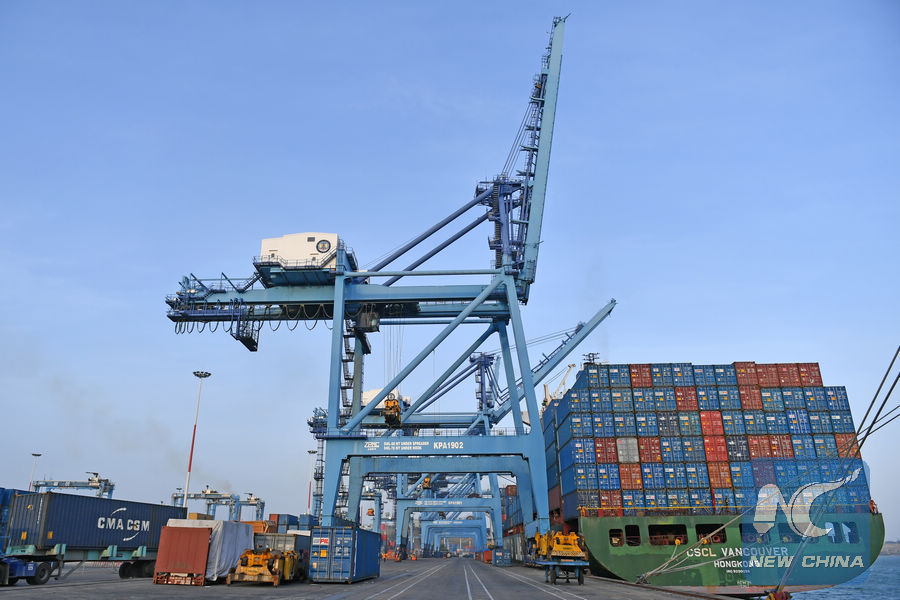
Photo taken on Jan. 9, 2017 shows the 19th berth of East Africa's largest port Mombasa Port in Mombasa, Kenya. (Xinhua/Sun Ruibo)
NAIROBI, May 10 (Xinhua) -- The International Monetary Fund (IMF) has forecast economic growth in sub-Saharan Africa to recover modestly from 2.8 percent in 2017 to 3.5 in 2018.
In its latest Regional Economic Outlook for sub-Saharan Africa released on Tuesday evening, the IMF said several economies such as Cote d'Ivoire, Ethiopia, Ghana and Senegal are expected to maintain robust growth at about 6 percent or faster.
"Average growth in the region is projected to rise from 2.8 percent in 2017 to 3.4 percent in 2018, with growth accelerating in about two-thirds of the countries in the region aided by stronger global growth, higher commodity prices, and improved capital market access," the IMF said in its report.
Abebe Aemro Selassie, Director of the IMF's African Department, said growth pickup has been largely driven by improved policies in some countries, and a more supportive external environment, including stronger global growth and higher commodity prices.
"These factors have supported high volumes of capital inflows into the region, facilitating external adjustment and a buildup of reserves in some countries," Selassie said in a statement.
The IMF said prudent fiscal policy is needed to rein in public debt, while monetary policy must be geared toward ensuring low inflation.
According to the report, countries should strengthen revenue mobilization and continue to advance structural reforms to reduce market distortions, shaping an environment that fosters private investment.
The lender said there is wide diversity in growth outcomes and prospects across countries in the region, noting that many countries that saw per capita incomes fall in 2017 could witness a further decline this year.
However, Selassie noted that macroeconomic vulnerabilities are rising in many countries as the required fiscal adjustment keeps getting delayed. 15 of the region's 35 low income countries are now rated to be in debt distress or at high risk of debt distress.
"In some countries, higher debt levels have translated into a sharp increase in debt service, diverting resources from much needed spending in areas such as health, education, and infrastructure," he added.
Selassie stressed that policy makers need to seize the opportunity provided by favorable external conditions to turn the current recovery into durable strong growth by taking domestic policy steps to reduce fiscal imbalances and raise medium-term growth potential.
The IMF said prudent fiscal policy, especially domestic revenue mobilization, is critical to make room for key infrastructure and social spending.
According to the report, there is scope to raise tax revenues by 3-5 percentage points of GDP over the next few years.
Selassie noted that the based on current policies, average medium-term growth for the region is expected to plateau below 4 percent, falling far short of the levels envisaged five years ago, and below what is needed for countries to achieve their Sustainable Development Goals.
He reiterated that sub-Saharan Africa remains a region with strong potential to harness its demographic dividend in the medium term - provided strong domestic policy measures are implemented.

